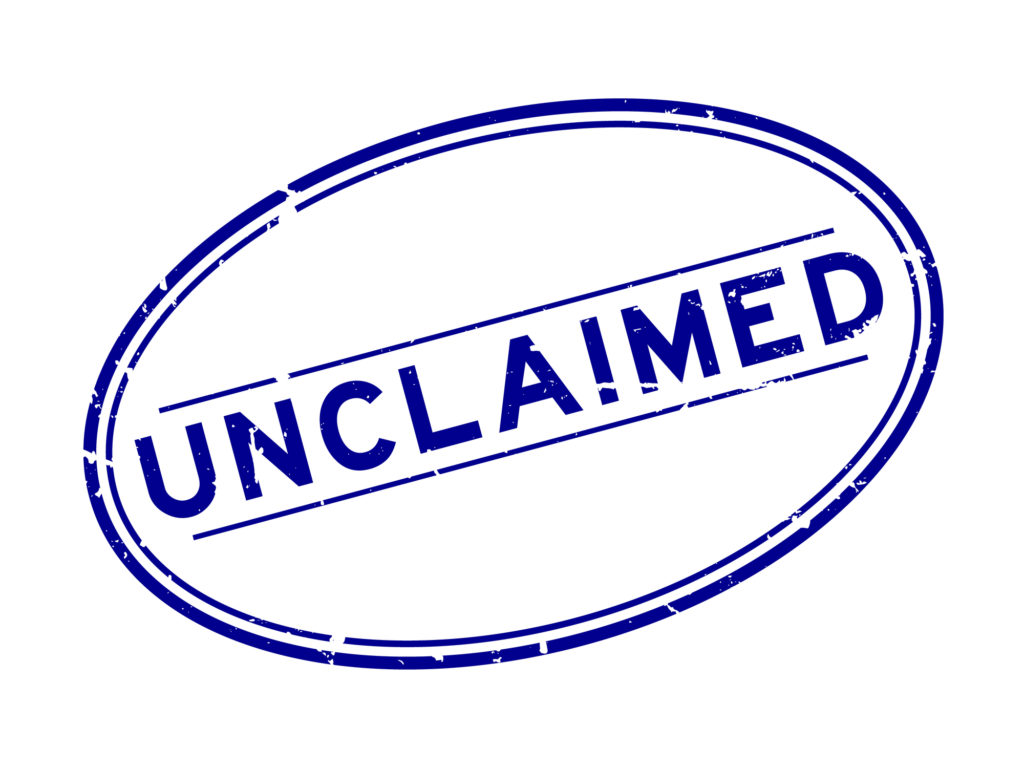 Each state has rules under which unclaimed property “escheats” to the state. This legal term means property is turned over to the state and the state owns it, subject to certain rights of reclamation by rightful owners. Businesses—holders of property—may be required to turn over certain property to the state. Here are some areas to watch for:
Each state has rules under which unclaimed property “escheats” to the state. This legal term means property is turned over to the state and the state owns it, subject to certain rights of reclamation by rightful owners. Businesses—holders of property—may be required to turn over certain property to the state. Here are some areas to watch for:
Overview of unclaimed property rules
Property within the control of your business that belongs to someone else—an employee, a customer, etc.—but which has not been claimed by such person within a certain period of time may have to be handed over to the state. Your business is merely the holder of such property; it doesn’t own it. The laws are very complicated regarding when and where to do the turn over. For example, does the unclaimed property belong to the state where the owner lives or where the property was purchased? There’s lots of litigation on these questions.
B2B exemptions
A number of states have “B2B exemptions” that don’t require businesses to turn over unclaimed property from business customers. For example, Ohio has a broad exemption for “Any payment or credit received by a business association from a business association for tangible goods sold, or services performed, in the course of business, including, but not limited to, checks or memoranda, overpayments, unidentified remittances, nonrefunded overcharges, discounts, refunds, and rebates. [Ohio Rev. Code §169.01(B)(2)(c)].” Some states have more limited exemptions.
Unclaimed wages
If you’re holding a paycheck for an employee who is no longer working for you, it eventually becomes unclaimed property under the laws of your state and you have certain responsibilities in handling the unpaid wages. Let me give you an example of what happens in my state of Florida:
- Employers must perform due diligence to find the employee (e.g., send a letter to the last known address). After one year of not being claimed by the employee (or an employee’s estate representative if the employee has died) despite the due diligence, the wages become unpayable.
- Employers must report and remit the unclaimed wages to the Florida Department of Financial Services (the place for unclaimed property).
Employers that fail to comply with state law requirements with respect to unpaid wages may be subject to penalties.
Payments from qualified retirement plans
Qualified retirement plans must make required minimum distributions (RMDs) to participants or beneficiaries at a set time (other than in 2020 when RMDs have been suspended). But sometimes these RMDs can’t be made because the participants or beneficiaries cannot be located. The IRS won’t challenge a plan for violating RMD rules because of this as long as there’s been a search based on publicly available records or directors, commercial locator services, credit reporting agencies, internet searches, and other means.
With that said, if a qualified retirement plan holds benefits for an individual who cannot be located and is required to turn over those benefits to a state (subject to a claim by the individual), the plan must withhold federal income taxes on the benefits (Rev. Rul. 2020-24). It’s no different from required withholding in distributions made directly to the individual. The plan must file Form 1099-R for each person to who it made a designated distribution or is treated as having made a distribution of $10 or more, including the amount of federal income tax withheld.
Note: Because the IRS only recently clarified income tax withholding requirements on plan benefits escheating to a state, you won’t be treated as having failed to comply with withholding and reporting requirements for payments made before January 1, 2022.
Unused gift cards
If you sell gift cards (and use the cash method of accounting), you’ve reported the revenue at the time you sold the cards. But what if the cards aren’t redeemed? The laws on treating unredeemed gift cards as unclaimed property vary state by state. In some locations, after five years you must turn over gift card money to the state; in other locations, the revenue becomes yours to effectively reclaim on your books.
Bottom line
When property is unclaimed, what’s yours? What belongs to the state? And what are your responsibilities? “Finders keepers” isn’t the answer. The rules are very complex and expert advice may be needed. For example, if you have unclaimed paychecks, talk with an employment law attorney.


